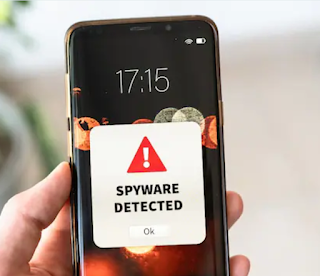A recent report by security analysts at Lookout reveals that iOS devices are more vulnerable to phishing attacks than Android devices. According to the latest Mobile Threat Landscape Report for Q3 2024, 18.4% of iOS devices were targeted by phishing attempts, compared to 11.4% of Android devices. Lookout, a cloud security company, compiled this data from an extensive mobile dataset that analyzed 220 million devices, 360 million apps, and billions of web items. Their security cloud has flagged over 473 million malicious websites, including phishing sites, since 2019. The primary goal of these phishing attacks is to steal sensitive personal information, such as usernames, passwords, and financial data.
One of the reasons iOS devices are particularly attractive to cybercriminals is their widespread use in workplace environments. The report notes that iOS devices are more common in enterprise settings, with Lookout’s user base showing more than twice as many iOS devices as Android devices. This larger number of devices creates more opportunities for attackers to target employees. In 2024, 19% of enterprise iOS devices faced at least one mobile phishing attack during the first three quarters, compared to only 10.9% of enterprise Android devices. This suggests that the prevalence of phishing attacks on iOS devices may be a reflection of their higher usage in professional contexts rather than any inherent security weakness in the iOS system itself.
Additionally, the report highlighted a significant uptick in cyberattacks on mobile devices. Lookout’s researchers observed a 17% increase in enterprise-focused credential theft and phishing attempts compared to the previous quarter, along with a 32% rise in the detection of malicious apps. These trends point to a shift in tactics by cybercriminal groups, who are now more aggressively targeting mobile devices during the initial stages of their attacks.
Although the report focuses on enterprise devices, regular consumers should also remain cautious. Phishing attacks have become more sophisticated, often targeting individuals through emails, messages, and fake websites. Whether using an iPhone or an Android device, consumers must be vigilant, as phishing attacks are becoming increasingly convincing due to advancements in AI. Cybercriminals are now able to craft realistic fake messages that closely resemble legitimate communications, with the aim of tricking users into clicking malicious links or downloading harmful files.
The key takeaway is to stay vigilant against phishing attempts. Be wary of emails or messages that seem urgent or unusual, even if they appear to come from trusted sources. Always verify links before clicking and avoid sharing personal information unless you're absolutely certain it’s safe. As phishing attacks become more sophisticated, it's essential to maintain a high level of awareness to protect your personal data.



